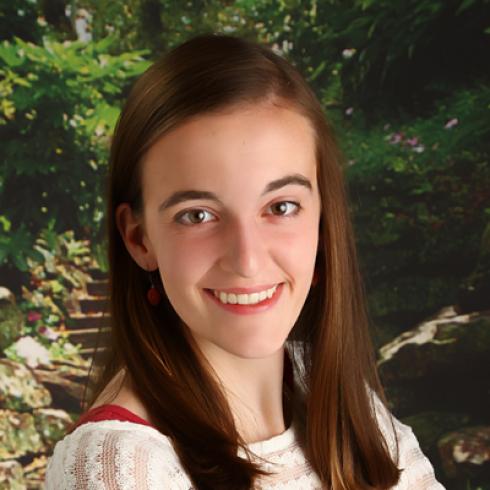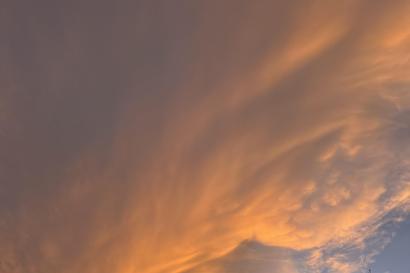The first time I talked to my sister on the phone after arriving here, as all the miles and miles of Atlantic Ocean yawned between us, she asked me what I’d found most different about Ireland, what had struck me as strangest. It was a great question and also a fairly straightforward one, but I hemmed and hawed and even though I finally said something about the people, about Irish friendliness and an old guy who’d helped us get to the train station, her question has been haunting me a little ever since.
Is there anything different about being here? Sure. There are lots of things. To start, the accents are softer and sweeter and sometimes just a bit difficult for my untrained ears to understand. The Irish language, as I’ve previously described, is everywhere asserting that English is not the only mode, not the only way. At my internship at a Dublin radio station, I’m befuddled not only by the British monarch joke cracked by one of my coworkers, but by the numerous political party names that seem to swim across the computer screen in front of me, the world no longer split into Democrats and Republicans or even between liberals and conservatives. (When I ask which parties supported gay marriage in the referendum last May, I’m told, to my astonishment, that all of them did, at least in cautious sort of way.)
There’s more, too. Water taxes are incredibly controversial here and people drive on the left side of the road. There are pubs and coffee shops all over the place, and when I order a “tea” in one of the latter, I’m understood to mean, by default, the Irish breakfast variety. The sugar that’s offered to go with it is usually brown. The zucchinis in my refrigerator are called courgettes, apparently, and I’m to ask the taxi driver for a lift, never a ride. Dryers aren’t really a “thing” here and the plugs have an on and off button (they’re also bizarrely shaped, but I was at least prepared for that). The measurements on all the ingredients are all in milliliters and grams, not cups and tablespoons, which made baking banana muffins last week with my roommates an exercise in estimation. It’s not common practice to tip waiters and taxi drivers as high as in the States, since they make minimum wage, and people actually refer to the U.S. as “the States.”
Nearly all of the toilets (also apparently known as the jacks?) have two circular buttons for flushing, the why of which was a major mystery to me until one of the other students brought it up in class, only to be told by our bemused instructor that one button causes a bigger flush than the other. People seem to dress up more often than in the U.S. – it’s not as common to see passersby strutting along in T-shirts and sweatpants – and also smoke more. The police officers, the Gardaí, don’t carry guns on a regular basis (I find this truly incredible), and “football” is neither the game played by the Buffalo Bills or what Americans call “soccer.” There seems to be a general dearth of street signs but an abundance of street name changes. I can’t find pretzels in the convenience store for the life of me, although there are an awful lot of things called “crisps.” Computer paper is longer here (as per the astute observation of my roommate) and Ireland does not observe daylight savings at the same time that the U.S. does. Pets are allowed on the trains, even if they’re as big as the giant chocolate lab mix that accompanied us part of the way to Dalkey, and you don’t get complementary plastic bags for your groceries – you have to pay for them.
Grocery bags and toilet bowls, drying racks and muffin-making – I’m embarrassed at how easily this list slips into mundane things. I’m embarrassed, too, at not being able to articulate more clearly what the difference between here and America is. But I have to admit, I’m hard-pressed to explain the space between them other than geographically. Are the people friendlier here? Is the food better? Is the workplace more relaxed? Are politics more sensible? (I don’t want to get too overly partisan here, but I will say that Ireland’s got a bit of a trump card as to ensuring an affirmative answer to this last one.) Anything I can say about the differences between the two sinks into specifics, seeps into anecdote, and to generalize any of these statements would seem only to make them untrue. Even my list above may be errant in places, true in my own singular encounters, false in and others.
But then, we’re wired for particulars. Our whole experience of a new and strange place, I think, is constructed not in the context of our broad experience of a homeland, but of our small experience of a home. I think a lot of us have this idea we carry with us, heavy and well-loved and hot-hot in specificity, an idea we call home, and our sense of some immutable construction of a country often stems from the fact that we’ve grafted where we come from onto an imagined ideal. Williamsville, where I grew up, and Williamstown, where I’ve spent most of my last two years, are my America. At the same time, I find pieces of them everywhere. It’s which impulse we happen to notice, choose to listen to, that determines whether we see difference or duplicate, contrast or comparison, and, sometimes, whether we are moved to compassion or fear.
It’s in our idea of home, I think, that’s at the root of the lines we draw, the ones that we sometimes demarcate so harshly and other times, let blur. The couple from Texas I meet in line at the immigration office tells me that they must be becoming Dubliners, since they’ve started going on and on about the weather, but going on and on about the weather is as ordinary a part of conversation in upstate New York and western Massachusetts as breathing. When in doubt, complain about the cold or, alternatively, remark on how refreshing it is that we’ve got some nice weather, for a change. Similarly, one of the girls in my program says that she first realized she was somewhere different from America when her taxi driver told her that she should come out to city center for the water charges protest. In America, she said, we’d be running in the other direction. But that’s not how things are in Williamstown, where I know a lot of people who might look to join the protest, where I’d hope that, issue fairly considered, I might be one of them. Another girl in the class, who speaks after the first, talks of the way the taxis don’t know where to go here. That wouldn’t happen in America, she says, but I’m not even sure Williamsville and Williamstown even have taxis, other than the occasional ones commuting in from Buffalo and Albany.
So we understand everything in great and personal detail. It’s a human impulse, I think, and it’s one from which I am not immune. Last week, on the bus to Cork, I was struck by a sudden certainty that I’d finally touched upon something authentically Ireland. As we wound our way through hillsides and farmland, past fields of softly golden hay, along slopes spotted with lumbering sheep, I was sure that this was the heart of Ireland, the great and beautiful green that throbbed at the center of it all.
I turned to my Midwestern roommate Lisa, feeling spellbound by the magic of this pure, unadulterated Ireland, and said, “Look at the land! Look at the fields!”
She looked out the window and then looked back at me, unimpressed.
“Yeah,” she said. “We’ve got a lot of that in Iowa.”

Chelsea Thomeer
I'm a rising junior at Williams College majoring in English and political science. I love reading and running, Jane Austen and J.K. Rowling, pumpkin bread and pretzels, The Grapes of Wrath and green tea. I'm spending a semester in Ireland to study Irish literature and to work on my own writing.








